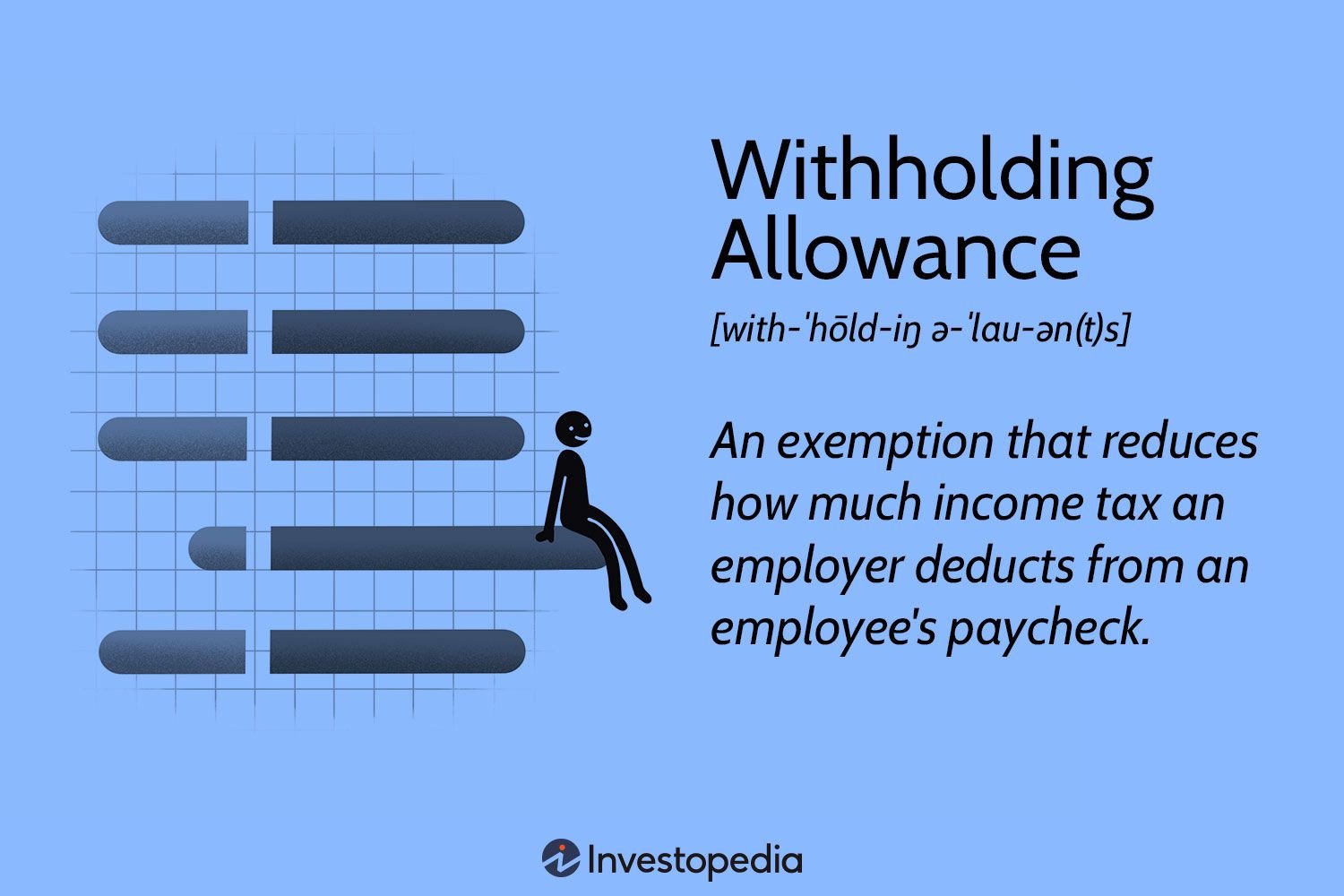Are you perplexed by the complexities of tax season? Understanding tax exemptions and deductions can seem like navigating a maze, but fear not! In this article, we’ll break down the intricacies of these concepts, providing you with clarity and confidence when it comes to your taxes. Whether you’re a seasoned tax filer or a first-time taxpayer, this guide will help demystify the world of exemptions and deductions. So, let’s dive in and unravel the mysteries of understanding tax exemptions and deductions.
Understanding Tax Exemptions and Deductions
When it comes to filing taxes, many individuals find themselves overwhelmed by the complex and ever-changing tax laws. However, understanding tax exemptions and deductions is essential for maximizing your tax savings. By taking advantage of these benefits, you can potentially reduce your tax liability and keep more of your hard-earned money. In this article, we will delve into the world of tax exemptions and deductions, exploring what they are, how they work, and how you can leverage them to your advantage.
1. Tax Exemptions: An Overview
A tax exemption is a legal provision that allows certain individuals or entities to exclude a specific amount of income or property from their taxable base. In other words, it is a way to reduce the amount of income subject to taxation. Tax exemptions can apply to various aspects of your financial life, such as personal income, property, investments, and more.
It’s important to note that tax exemptions can vary from one jurisdiction to another and may change over time due to legislative updates. Before claiming any tax exemptions, it is crucial to consult with a tax professional or refer to the most recent tax guidelines provided by your local tax authority.
1.1 Personal and Dependent Exemptions
Personal and dependent exemptions were a common form of tax exemption in the past, but they have undergone significant changes in recent years. In the United States, for example, the Tax Cuts and Jobs Act (TCJA) passed in 2017 eliminated personal exemptions entirely.
Previously, taxpayers could claim a specific amount per qualified dependent, including children and other dependents such as elderly parents. These exemptions would directly reduce the taxpayer’s adjusted gross income (AGI), thereby lowering their taxable income.
However, even though personal exemptions are no longer available, there are other tax benefits and deductions that can help offset the cost of caring for dependents. We will explore these deductions in more detail later in this article.
2. Tax Deductions: How They Work
Tax deductions are expenses or certain types of financial transactions that can be subtracted from your taxable income. They help to reduce your overall tax liability by lowering the amount of income that is subject to taxation. By carefully identifying and documenting deductible expenses, you can potentially save a significant amount of money on your tax bill.
It’s important to note that tax deductions can be classified into two main categories: standard deductions and itemized deductions.
2.1 Standard Deductions
Standard deductions are a predetermined amount that taxpayers can deduct from their taxable income without having to itemize their expenses. The standard deduction is a simplified way of reducing your taxable income and is available to most taxpayers.
The amount of the standard deduction can vary based on your filing status (e.g., single, married filing jointly, head of household) and is adjusted annually to account for inflation and changes in tax law. It is essential to stay updated on the latest standard deduction amounts to ensure you are taking full advantage of this tax benefit.
For example, in the United States for the tax year 2021, the standard deduction is $12,550 for individuals filing as single and $25,100 for married couples filing jointly.
2.2 Itemized Deductions
Itemized deductions, on the other hand, require you to list each deductible expense individually on your tax return. By itemizing your deductions, you can potentially claim more significant tax savings if your total eligible expenses exceed the standard deduction amount.
Itemized deductions typically include expenses such as medical and dental costs, state and local taxes, mortgage interest, charitable contributions, and certain job-related expenses. However, it’s crucial to review the specific tax laws of your jurisdiction, as the eligibility and limitations of itemized deductions can vary.
Keep in mind that itemizing deductions requires additional record-keeping and documentation compared to claiming the standard deduction. You will need to gather receipts, invoices, and other relevant documents to support your claims.
3. Common Deductions to Consider
To help you navigate the world of tax deductions, let’s explore some common deductions that may apply to your situation. Remember, eligibility and limitations may vary based on your jurisdiction and individual circumstances. Always consult with a tax professional or refer to the latest tax guidelines for accurate information.
3.1 Education-Related Deductions
If you or your dependents are pursuing higher education, there are several tax deductions and credits available to help ease the financial burden. Here are a few worth considering:
- Tuition and Fees Deduction: You may be able to deduct qualified education expenses, such as tuition and required fees, up to a certain limit.
- Lifetime Learning Credit: This credit allows you to claim up to $2,000 per tax return for qualified education expenses.
- American Opportunity Credit: Designed for undergraduate students, this credit offers up to $2,500 per eligible student.
Remember to review the specific eligibility requirements and limitations for each deduction or credit to ensure you meet the criteria.
3.2 Homeownership Deductions
Owning a home comes with its own set of tax benefits. Here are a few deductions commonly associated with homeownership:
- Mortgage Interest Deduction: You can deduct the interest paid on your mortgage, up to a certain limit, as long as you itemize your deductions.
- Property Tax Deduction: Homeowners can deduct the property taxes paid on their primary residence and, in some cases, on secondary properties.
- Energy-Efficient Home Improvements: Making qualifying energy-efficient improvements to your home may entitle you to tax credits.
Be sure to keep track of all relevant expenses and consult with a tax professional to ensure you accurately claim these deductions.
3.3 Medical and Healthcare Deductions
Medical expenses can add up quickly, but some of them may be tax-deductible. Here are a few examples:
- Medical and Dental Expenses: You may be able to deduct out-of-pocket medical and dental costs that exceed a certain percentage of your adjusted gross income (AGI).
- Health Savings Account (HSA) Contributions: Contributions made to your HSA are tax-deductible, and the funds can be used for eligible medical expenses.
It’s important to keep detailed records of your medical expenses, including receipts, invoices, and healthcare provider statements, to substantiate your claims.
3.4 Charitable Contributions
If you’re a generous donor, you may be able to deduct charitable contributions on your tax return. Here are a few key points to consider:
- Cash Donations: You can deduct cash or check donations made to qualifying charitable organizations, subject to specific limitations.
- Non-Cash Donations: Donations of clothing, household items, and other non-cash items can be deducted if donated to eligible charitable organizations.
- Volunteer Expenses: In some cases, certain unreimbursed expenses related to volunteering for charitable organizations may be deductible.
Remember to keep records of your donations, including acknowledgment letters from the charitable organizations, to substantiate your deductions.
3.5 Business and Self-Employment Deductions
If you’re a business owner or self-employed, there are various deductions you may be eligible for to reduce your tax liability. These deductions can help offset the costs associated with running your business. Here are a few examples:
- Business Expenses: Ordinary and necessary business expenses, such as office supplies, advertising costs, and travel expenses, can be deducted.
- Home Office Deduction: If you have a dedicated space in your home used exclusively for business, you may be able to claim a portion of your rent/mortgage and utilities as a deduction.
- Self-Employment Taxes: Self-employed individuals can deduct the employer-equivalent portion of their self-employment taxes.
It is crucial to maintain accurate records of all business-related expenses and consult with a tax professional to ensure compliance with tax regulations.
4. Conclusion
Understanding tax exemptions and deductions is essential for minimizing your tax liability and maximizing your savings. By familiarizing yourself with the specific exemptions and deductions that apply to your situation, you can take advantage of the opportunities available to you. Remember, tax laws can change, so it’s important to stay informed and consult with a tax professional to ensure you are taking full advantage of the benefits available to you.
What is a Tax Write-Off and Tax Deduction for Small Businesses?
Frequently Asked Questions
Frequently Asked Questions (FAQs)
What are tax exemptions and deductions?
Tax exemptions and deductions are provisions in the tax code that allow taxpayers to reduce their taxable income, which in turn can lower the amount of tax they owe. Exemptions are specific amounts that can be deducted from the taxpayer’s income, while deductions are expenses or items that can be subtracted from the taxpayer’s total income.
How do tax exemptions work?
Tax exemptions work by reducing the taxable income of an individual or business. For example, if an individual qualifies for a tax exemption of $5,000 and has a taxable income of $50,000, the exemption would reduce their taxable income to $45,000.
What are some common tax exemptions?
Some common tax exemptions include personal exemptions for yourself and your dependents, exemptions for senior citizens, and exemptions for individuals with disabilities. Additionally, some states offer exemptions for things like military service, low-income individuals, or if you own a home.
What is the difference between tax exemptions and tax deductions?
The main difference between tax exemptions and tax deductions is how they affect your taxable income. Tax exemptions directly reduce your taxable income by a specified amount, while tax deductions reduce your taxable income by the amount of qualified expenses or items.
Can I claim tax exemptions and deductions if I take the standard deduction?
No, if you choose to take the standard deduction, you are not eligible to claim specific tax exemptions or deductions. The standard deduction is a set amount determined by the IRS that reduces your taxable income without the need for itemizing individual deductions.
What are some common tax deductions?
Common tax deductions include mortgage interest, state and local taxes paid, medical expenses, charitable contributions, and educational expenses. Business owners may also deduct expenses related to their business, such as rent, utilities, and office supplies.
Are there any limits to tax exemptions and deductions?
Yes, there are limits to tax exemptions and deductions. The specific limits vary depending on the type of exemption or deduction. For example, there may be income limitations for certain exemptions or caps on the amount of deductions you can claim. It’s important to consult the tax code or a tax professional for specific details.
What documentation do I need to claim tax exemptions and deductions?
To claim tax exemptions and deductions, you will typically need documentation such as receipts, invoices, or statements that support your claims. It’s important to keep accurate records and have proper documentation in case of an audit or review by the tax authorities.
Can I get help understanding tax exemptions and deductions?
Yes, if you need help understanding tax exemptions and deductions, it’s advisable to consult a tax professional. They can provide guidance based on your specific situation and help ensure you take advantage of all available exemptions and deductions while staying compliant with the tax laws.
Final Thoughts
Understanding tax exemptions and deductions is crucial for maximizing your tax savings. By taking advantage of these opportunities, you can potentially lower your taxable income and reduce the amount of taxes you owe. Tax exemptions allow you to exclude certain income from being taxed, such as child or dependent care expenses. On the other hand, deductions enable you to subtract qualified expenses from your taxable income, like mortgage interest or medical expenses. By familiarizing yourself with the available exemptions and deductions, you can make informed decisions when it comes to your taxes, potentially saving you a significant amount of money. So, understanding tax exemptions and deductions is essential for any taxpayer looking to optimize their financial situation.



